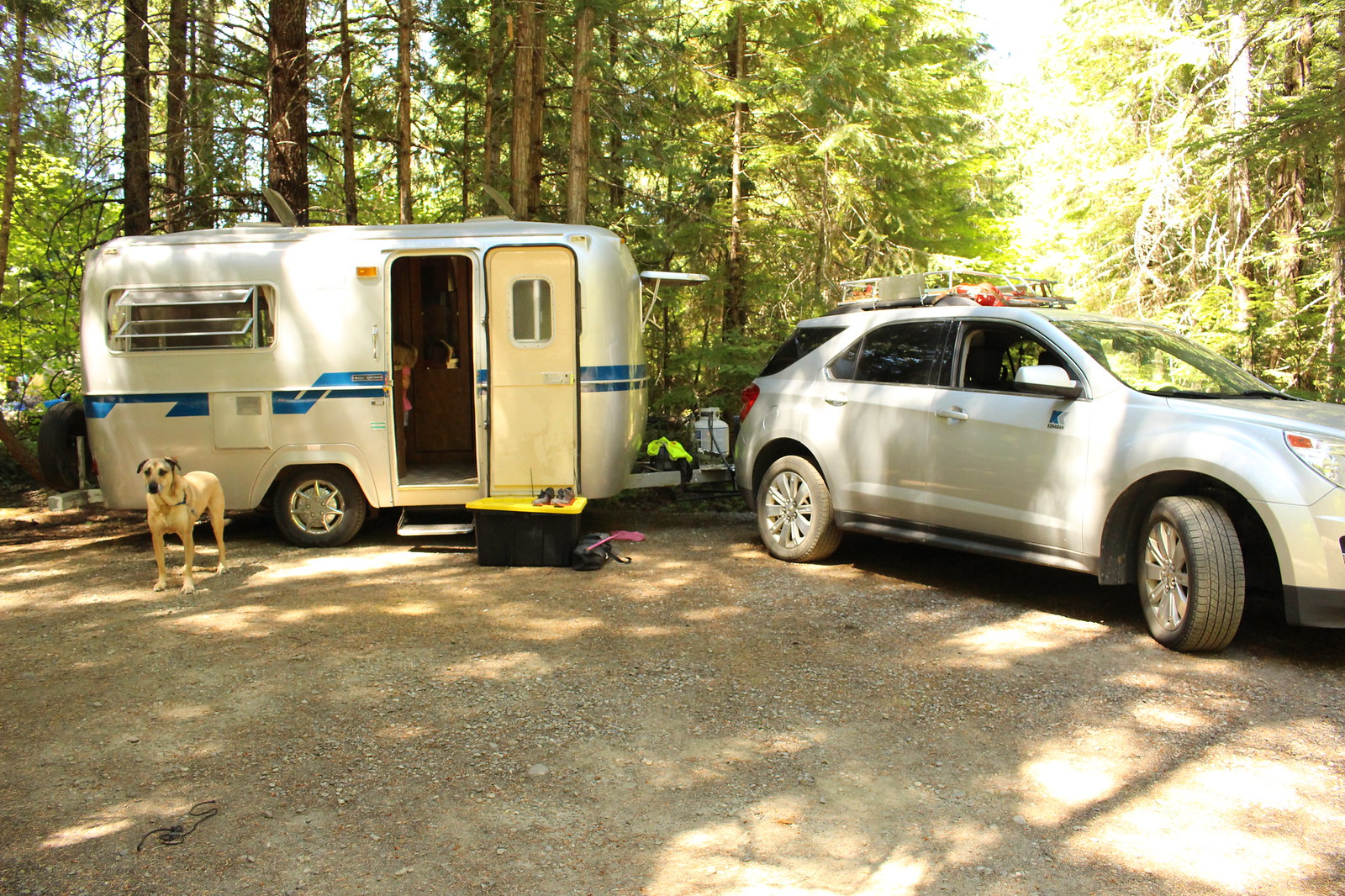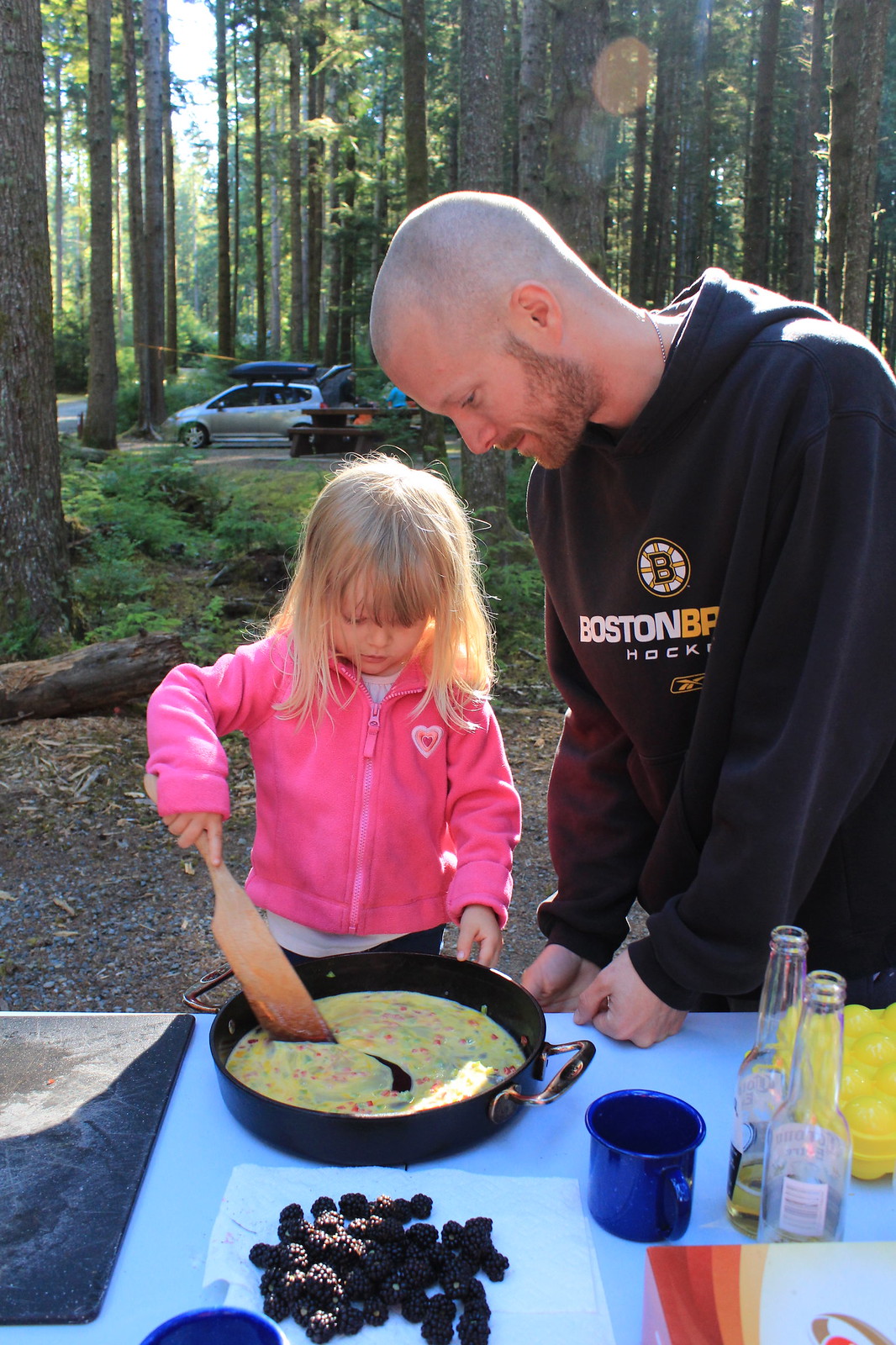We feel that we are most definitely going into this new lifestyle prepared, however neither one of us have a definite plan for paid work at the moment. This means that over our next few months on the road we will need to stretch each and every dollar as best as we can. Here are some of the ways that we plan on affording our life on the road over the next few months:
1) Reducing What We Own: This one may be bigger than some realize. Not only will we not be faced with the cost of shipping furniture and other belongings across the country, but we are also making money selling our possessions. After two months of de-cluttering, we have rid our home of over a thousand items and we have made over $3,000! Plus, there's still more to sell before we leave in just over 2 weeks.
Of course this money we make cannot all be viewed as cash in our pockets since we will have to furnish a home once we reach the east coast. Thankfully, we plan on having a much smaller house, and we also know we are quite capable of designing and building beautiful, functional furniture. Who knows, maybe our furniture building prowess will prove to be a money maker in our future. There's no one else I would rather work with than my handy husband!
We're no strangers to dry camping! Our first dry trip with our Boler was in July 2015 when Nolan was only 6 weeks old!
2)Boondocking/Dispersed Camping: Boondocking is a term used to describe backcountry or primitive camping, away from developed campgrounds and other campers. In the United States it's possible to camp for free in National Forests and land owned by the Bureau of Land Management (BLM). This was actually something I only discovered a few weeks back as I was researching campsites along our west coast roadtrip route. Each forest has different rules and regulations for dispersed camping, so it's always important to take a look at those before you head out.
The most important thing to keep in mind when it comes to dispersed camping is that services are not provided. No water, tables and often no toilets. For us this won't be a huge issue as we'll have the trailer and can bring our own water, we also won't stay in one spot longer than two days. It's also important to leave no trace - which means no destroying the forest or vegetation and cleaning up after yourself. Campers must leave these public spaces exactly how they were found. If you think you can handle this, it's the perfect way to make camping trips more affordable, and we look forward to trying our hand at it.
3) Discount Camping Clubs: This was one of the first discounts I discovered for our travels. There are a number of clubs that you can join that give you up to 50% off campsites all over the US and Canada. Before signing up, check which campgrounds are included are in club so you can be sure you will maximize the money saved. Also, before you leave for your trip make sure you check the rules of each campground, as some will only allow the discount on certain days, seasons and lengths of time.
Discount Camping clubs can be extremely useful to travellers, just make sure that you do your research prior to joining to be sure you will save enough money to make your membership worthwhile. For us, we found Passport America will provide us the most useful discount during our months on the road. When we aren't dispersed camping, we should be able to save quite a bit of money with the campsites included in this program.
Brett and Halle cooking breakfast together at Juan de Fuca Provincial Park in August 2014
4) Meal Prep/Planning: This is something I have been trying to be better about the last couple of years, and I must admit it is a great way to save both money and time. By sitting down once or twice a week to plan out breakfast, lunch and dinners (and sometimes snacks as well) I'm able to come up with a concise list that keeps me from spending unnecessary money or wasting food. It also helps us to not end up in a situation where we are hungry and end up eating out since neither of us can be bothered to come up an idea and cook.
Having a plan for what we'll eat means I check our pantry/fridge first to see what we have to work with, and plan around that. My shopping list is then usually much smaller since I also try to choose meals that include some of the same ingredients. You may be surprised at how much money you can save just by taking a few extra minutes each week to lay out your meals for the days ahead.
We haven't even hit the road yet, but so far these are the ideas we have come up with to help us in our situation. In an ideal world we'd also have a solar set up for our rig, which would reduce our need for our batteries, and prolong the time that we could spend boondocking. We also hope to spend our time enjoying the free natural wonders that will surround us as we explore.
What other ways have you saved money while travelling? We're open to suggestions that will aide us in making this journey as affordable as possible.


Your posts remind me of a recent one on Design Mom. I thought you might be interested to read of another family doing something similar to you (and they're from Vancouver too). Here is the link http://www.designmom.com/2016/03/living-with-kids-laura-house/. Good luck. What a wonderful adventure.
ReplyDeleteฉันชอบมัน! มันสุดยอด!!!
ReplyDeleteคาสิโนออนไลน์
maxbet
m8bet
Very helpful! Thanks so much! Now I get to categorize my posts.
ReplyDeletegclub
You've just mastered that!!! gamerth.hatenablog | blog
ReplyDeleteThank you for creating good content for us to read.
ReplyDeleteดูหนังใหม่ 2021
รีวิวหนังใหม่